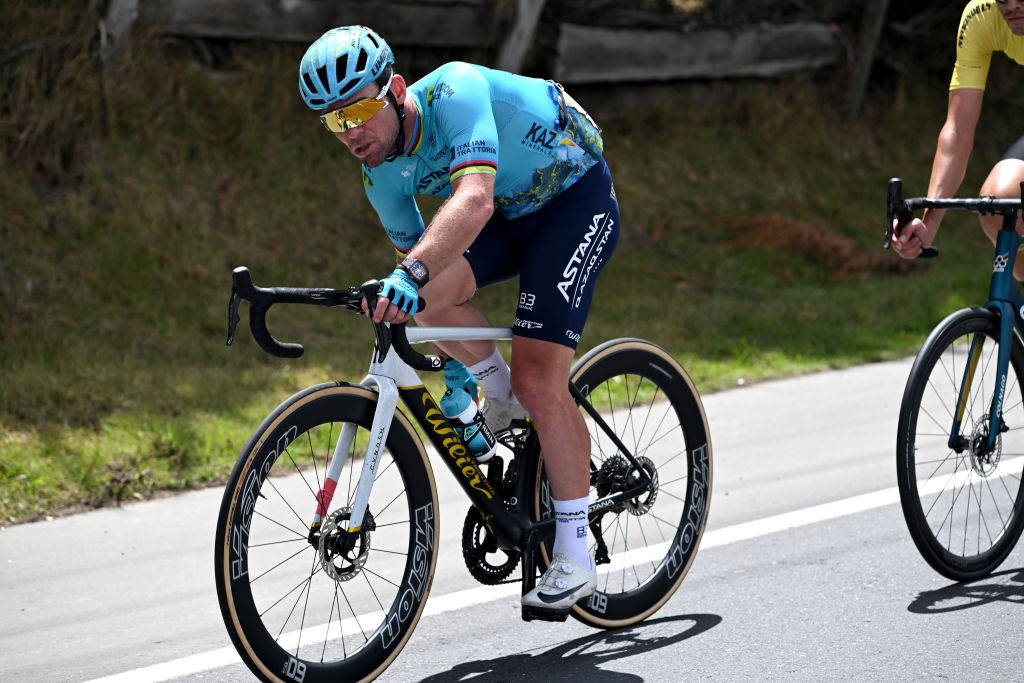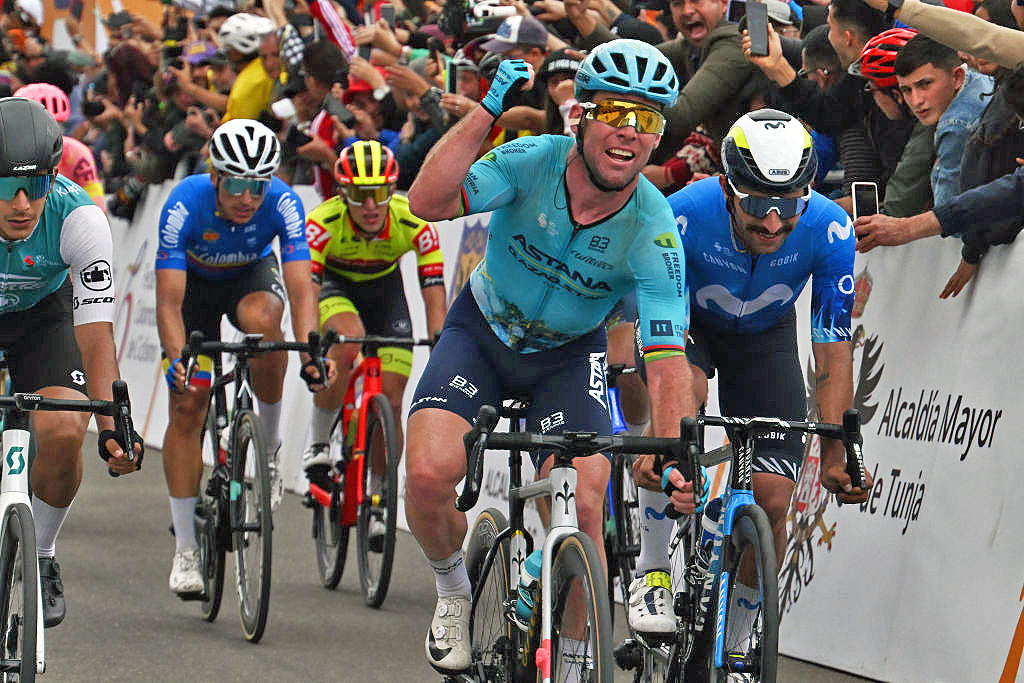'He doesn't have to fight for his position' – Mark Cavendish’s clear path to the Tour de France
Coach Vasilis Anastopoulos outlines sprinter's steps from here to July

Mark Cavendish had to settle for 22nd in the chaotic opening stage at the UAE Tour on Monday, but he could view the outing as a passing frustration rather than an urgent cause for alarm. Every sprinter wants to win at every available opportunity, of course, but since joining Astana Qazaqstan a year ago, Cavendish has the consolation of knowing that he won’t be short of chances to shine this season.
After years of fighting to carve out space for himself at QuickStep, Bahrain and even in the latter part of his time at Dimension Data, Cavendish is enjoying the relative luxury of a clearly defined racing schedule and a guaranteed slot at the Tour de France.
For coach Vasilis Anastopoulos, who rejoined Cavendish’s entourage ahead of the new season, therein lies the great difference between life at Astana and at QuickStep.
“He’s more relaxed, he doesn’t have to fight for his position anymore,” Anastopoulos told Cyclingnews after Cavendish’s stint at the Tour Colombia earlier this month. “He’s already known his programme for this year since September, the programme he has to follow all the way until the Tour de France.
“We’ve already planned all the training camps, all the altitude camps. Everything is planned, and he’s confident in the work we’re doing. He doesn’t have to fight for his position, whereas in Quickstep he always had to prove himself and he wasn’t sure that he was going to do some races. Now, it’s more tranquillo and it’s also better for me to plan and do my job.”
That planning began shortly after Cavendish walked back his initial intention to retirement last summer, with Anastopoulos sketching out the idea of bringing the Manxman and a small group including Michael Mørkøv and Cees Bol to Colombia for a January training camp.
The idea had taken root even before the Tour Colombia’s return to the calendar was confirmed. When the event was formally announced in midwinter, Anastopoulos figured they might as well extend their stay in the Andes and compete. In that light, Cavendish’s victory in Zipaquirá on stage 4 was something of an add-on to the basic altitude training package.
Get The Leadout Newsletter
The latest race content, interviews, features, reviews and expert buying guides, direct to your inbox!
“The biggest mission for us was not the Tour Colombia, it was to prepare the season,” Anastopoulos said. “I just wanted to go and do an altitude camp with the guys, away from the distractions and the long climbs in Europe, so away from Teide or Sierra Nevada.
"To me, Colombia was the ideal destination. That’s why this altitude camp was already organised in August or September before the race was announced. The Tour Colombia was just an extra bonus.”
All told, Cavendish, Alexey Lutsenko et al spent the bones of a month in Colombia, starting with a week in Rionegro near Medellín as an introduction to training at altitude, before moving above 2,500m when they relocated to the department of Boyacá for the fortnight prior to the race.
“Logistically, it wasn’t easy to organise training because every day I had to do two groups, one with the sprinters and another with the climbers and classics guys, but we had a lot of help from the local police and the race organisation,” Anastopoulos said. “In the end, we put the pieces of the puzzle together for everybody.”
Altitude training is hardly de rigueur for sprinters and the experience was a relative novelty for Cavendish, but for Anastopoulos, the idea was to work on building his rider’s aerobic capacity with a particular eye to the demanding opening to this year’s Tour de France. The 38-year-old is due to undertake another stint at altitude in Sierra Nevada in late May and early June.
“It was just to put the foundation of the season,” said Anastopoulos. “You have to be careful at altitude. The majority of work done was low intensity, but of course, there were times when we had to do some high intensity because we had to do some sprints as well.”
Greece, Hungary and Switzerland

After riding the UAE Tour this week, Cavendish will move on to Italy in March to ride Tirreno-Adriatico and Milano-Torino, before lining out at the Classic Brugge-De Panne and Scheldeprijs in April.
The only downtime built into his schedule comes after those Belgian races, before Cavendish begins his final Tour build-up in earnest with a two-week camp in Anastopoulos’ native Greece.
“It's a tradition now, we already did it in 2021 and 2022,” Anastopoulos said. “He loves it over there, he spends a lot of time with my family. We’re just going to do our things and we’ll use the track in Athens to do some sprint work too.”
From Greece, Cavendish will travel onwards to line out at the Tour of Hungary in May, before returning to altitude in Sierra Nevada.
“After that, we have to choose between the Tour de Suisse and ZLM Tour, but it’s probably going to be Tour de Suisse,” Anastopoulos said. “Then there’s ten days left for some specific sprint work before the Tour.”
July, ultimately, is what it’s all about. Same as it ever was. And while the road there is more straightforward than it was in his QuickStep days, the coach maintains the rider himself is fundamentally unchanged.
“He’s still the same Mark, the same guy, with the same determination and professionalism. If he didn’t, he wouldn’t still be riding at 39. That’s hard. But he’s still got it.”

Barry Ryan was Head of Features at Cyclingnews. He has covered professional cycling since 2010, reporting from the Tour de France, Giro d’Italia and events from Argentina to Japan. His writing has appeared in The Independent, Procycling and Cycling Plus. He is the author of The Ascent: Sean Kelly, Stephen Roche and the Rise of Irish Cycling’s Golden Generation, published by Gill Books.